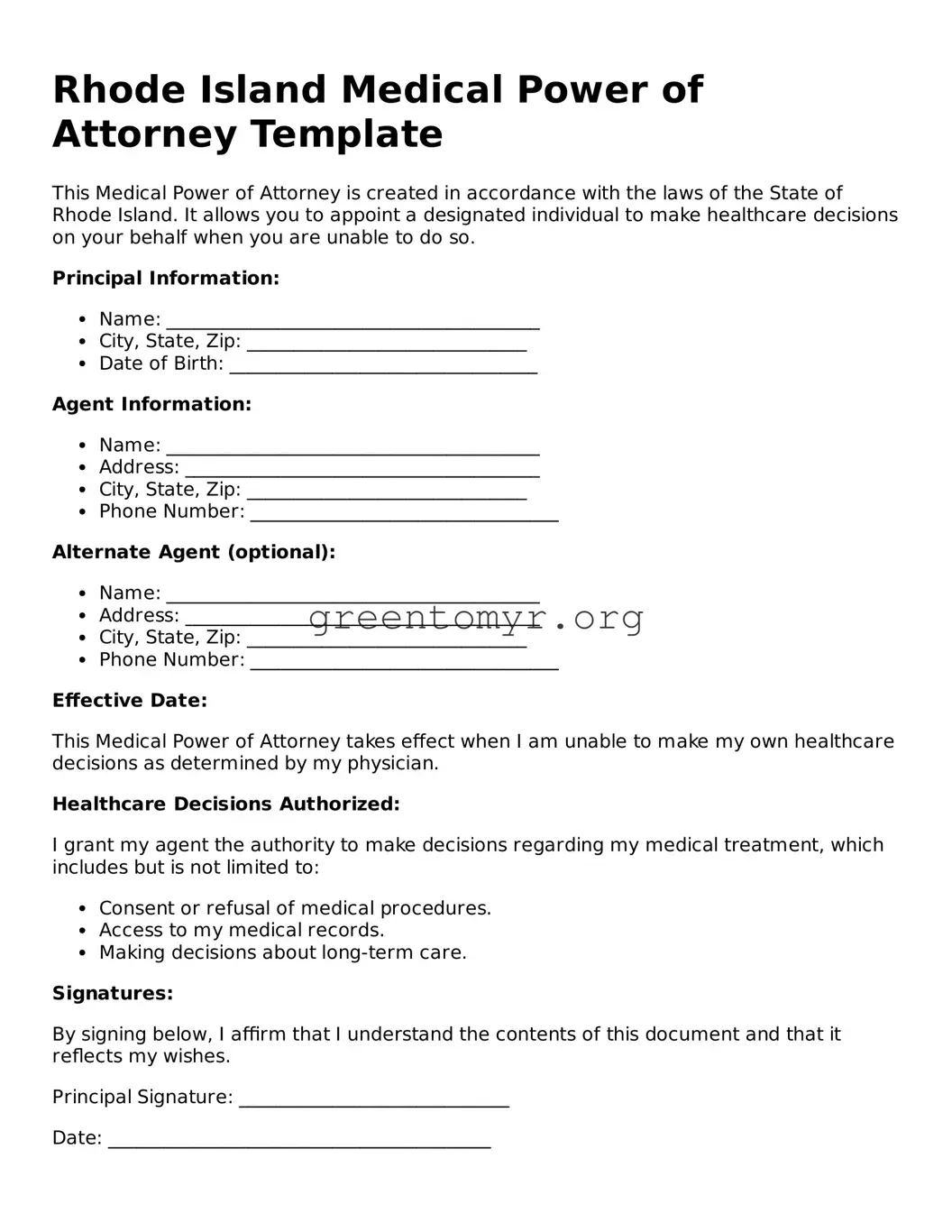Rhode Island Medical Power of Attorney Template
This Medical Power of Attorney is created in accordance with the laws of the State of Rhode Island. It allows you to appoint a designated individual to make healthcare decisions on your behalf when you are unable to do so.
Principal Information:
- Name: ________________________________________
- City, State, Zip: ______________________________
- Date of Birth: _________________________________
Agent Information:
- Name: ________________________________________
- Address: ______________________________________
- City, State, Zip: ______________________________
- Phone Number: _________________________________
Alternate Agent (optional):
- Name: ________________________________________
- Address: ______________________________________
- City, State, Zip: ______________________________
- Phone Number: _________________________________
Effective Date:
This Medical Power of Attorney takes effect when I am unable to make my own healthcare decisions as determined by my physician.
Healthcare Decisions Authorized:
I grant my agent the authority to make decisions regarding my medical treatment, which includes but is not limited to:
- Consent or refusal of medical procedures.
- Access to my medical records.
- Making decisions about long-term care.
Signatures:
By signing below, I affirm that I understand the contents of this document and that it reflects my wishes.
Principal Signature: _____________________________
Date: _________________________________________
Witness Signatures:
- Signature: _______________________________ Date: ________________
- Signature: _______________________________ Date: ________________
Notarization (optional):
State of Rhode Island, County of ________________
Subscribed and sworn to before me on this ___ day of __________, 20__.
Notary Public: _____________________________
My Commission Expires: _____________________
